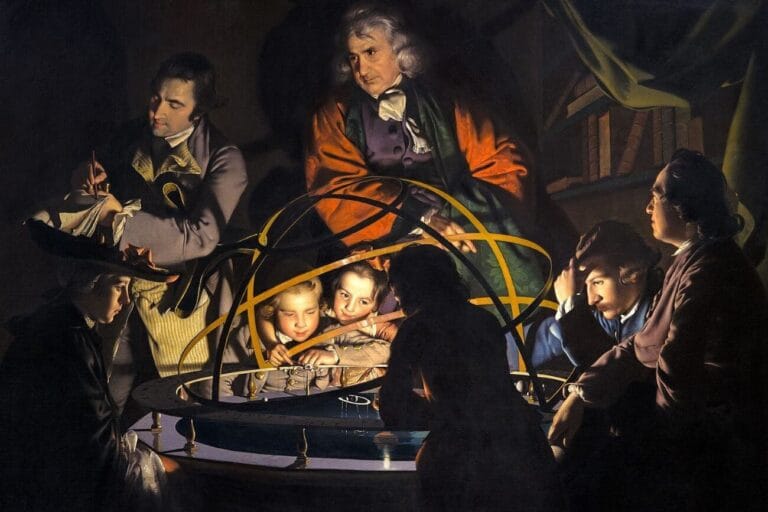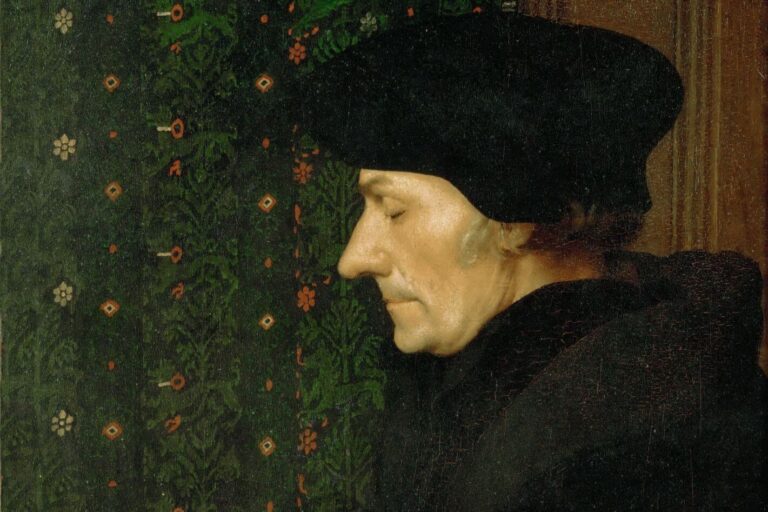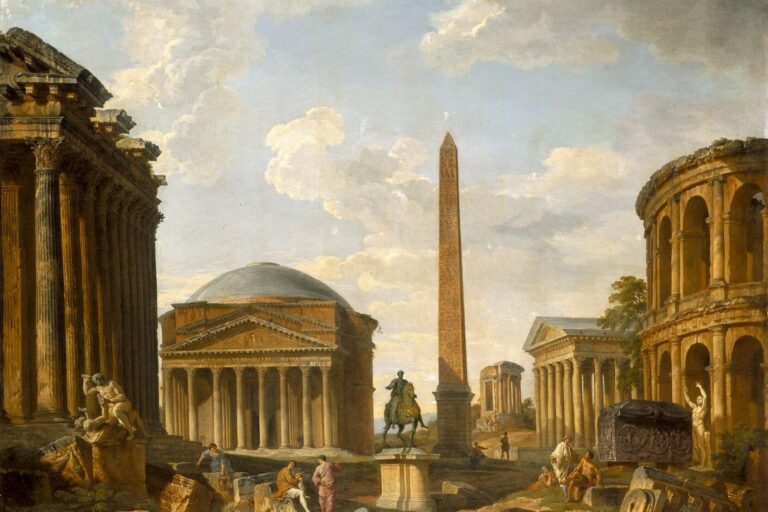Plato (c. 427-348) was an ancient Greek philosopher from Athens, mostly known for his Socratic dialogues The Republic and The Symposium. Born into an aristocratic family, he would have been expected to pursue a career in politics. When he came into contact with Socrates, however, Plato developed a keen interest in philosophy, eventually founding his own school in Athens, known as the Academy. He wrote close to thirty Socratic dialogues, praised for both their literary and philosophical merits, on all kind of subjects, such as metaphysics, ethics, politics, aesthetics, mathematics, geometry, and epistemology. Together with his teacher Socrates and his student Aristotle, Plato is generally seen as one of the central figures in the history of Western philosophy.
“The safest general characterization of the European philosophical tradition is that it consists of a series of footnotes to Plato. I do not mean the systematic scheme of thought which scholars have doubtfully extracted from his writings. I allude to the wealth of general ideas scattered through them. His personal endowments, his wide opportunities for experience at a great period of civilization, his inheritance of an intellectual tradition not yet stiffened by excessive systematization, have made his writing an inexhaustible mine of suggestion.”
Alfred North Whitehead, from Process and Reality
In his Symposium, Plato recounts a symposium (a ‘drinking party’) in Athens in in which the guests decide to hold a speech contest in praise of Eros, the god of Love or Desire. It includes some of the most known figures from classical Athens, such as the playwright Aristophanes, the statesman Alcibiades, and the philosopher Socrates. While such drinking parties were not uncommon among the aristocracy, the fact that Plato chose it as a setting for a Socratic dialogue is quite remarkable. One explanation is that the symposium itself had an educational component, since it was here that adolescents were introduced into aristocratic society, into matters of love and adulthood – it was not unusual that an older man (erastes) would tutor a younger male (eromenos) in these matters, while at the same time engaging in a romantic relationship. It certainly makes for an entertaining read, but as so often with Plato, he seems to elicit more questions than he answers.

The Symposium
The Symposium begins with two Athenians running into each other: Apollodorus, a fervent follower of Socrates, and Glaucon, Plato’s older brother. Glaucon insists that Apollodorus reports to him what happened at that famous drinking party that took place at Agathon’s place, some years ago, to celebrate the poet’s prize with his first tragedy. Apollodorus at last gives in and starts to recount the Agathon’s symposium. After all the guests arrived, he tells, the physician Eryximachus challenged everyone to hold a speech in praise of Love, to which all others happily agreed.
“I once found a book by a clever writer in which salt gets amazing praise for its beneficial properties, and you can find encomia to many other such things. It’s terrible that people have given serious attention to subjects like that, but nobody to this day has yet had the courage to sing the praises of Love as he deserves. Such a great god and so neglected!”
Plato, The Symposium 177b-177c (trans. Christopher Gill)
Phaedrus: Love as Guidance
Phaedrus, a young student of rhetoric and poetry, is the first to speak. He praises romantic Love as the greatest counselor of mankind, stating that it urges us to live well. We want to look good in the eyes of our beloved so that we do not lose the other’s love. In other words, Phaedrus claims that Love makes us care about how others perceive us, which impels us to live nobly and courageously.
“Because of his antiquity, [Love] is the source of our greatest benefits. I would claim that there is no greater benefit for a young man than a good lover and non greater for a lover than a good boyfriend. Neither family bonds nor public status nor wealth nor anything else is as effective as love in implanting something which gives lifelong guidance to those who are to lead goo lives. What is this? A sense of shame at acting disgracefully and pride in acting well. Without these no individual or city can achieve anything great or fine.”
Plato, The Symposium 178c-179a (trans. Christopher Gill)
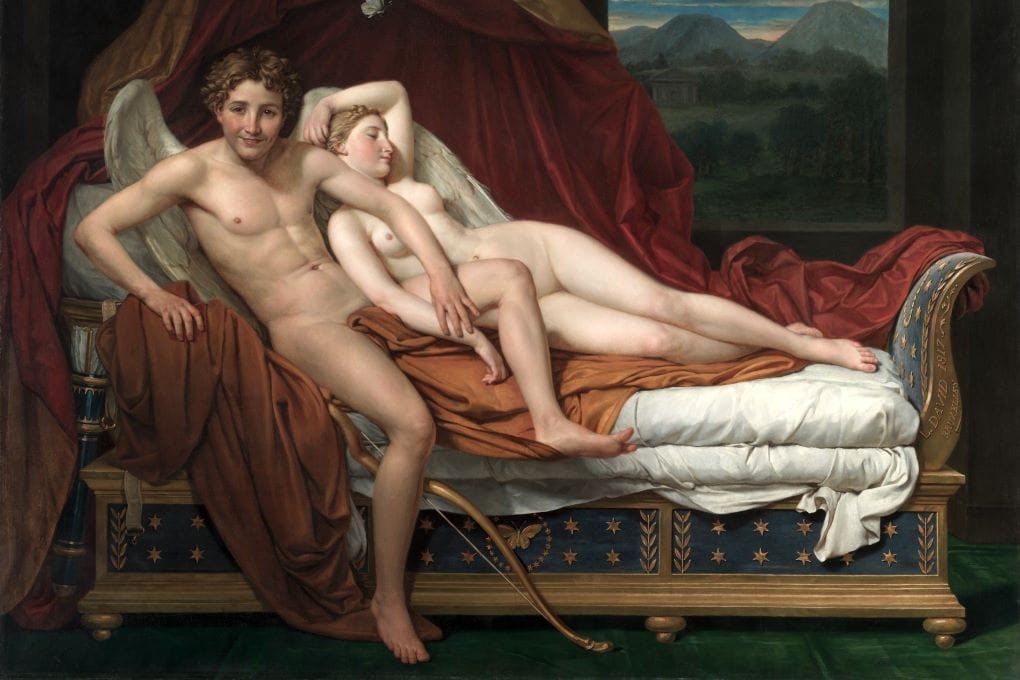
Pausanias: Common and Heavenly Love
Pausanias, a legal expert and the lover of Agathon, is the second to speech. He states that one should first define the various kinds of Love before praising its qualities. And so he begins to differentiate between Common Love and Heavenly Love. The former is directed at women and boys and aimed at sexual gratification, while the latter is directed at younger males and is aimed at spiritual development. So for love to be good, it needs to have both the right character and object.
“Every activity in itself is neither right nor wrong. Take our present activity: we could be drinking or singing or discussing. None of these is right in itself; the character of the activity depends on the way it is done. If it is done rightly and properly, it is right; if it is not done properly, it is wrong. So not every type of loving and Love is right and deserves to be praised, but only the type that motivates to love rightly.”
Plato, The Symposium 181a (trans. Christopher Gill)
Eryximachus: Love as a Cosmic Force
Eryximachus, a physician, is the third to speak. He too distinguishes between two kinds of Love, but he does so from a physiological perspective. He views Love as a cosmic force that governs all things by means of attraction. And if exercised properly, Love can reconcile opposites and attain a state of balance. Thus, the right exercise of Love is crucial for our physical and mental health.
“The character of the seasons is also determined by these two kinds of love. When those elements I mentioned before (hot and cold, dry and wet) are influenced by the well-ordered Love, they are in harmony with each other and achieve a temperature mixture. Their arrival brings good harvests and health to humans, other animals, and plants and causes no damage.”
Plato, The Symposium 188a (trans. Christopher Gill and Desmond Lee)
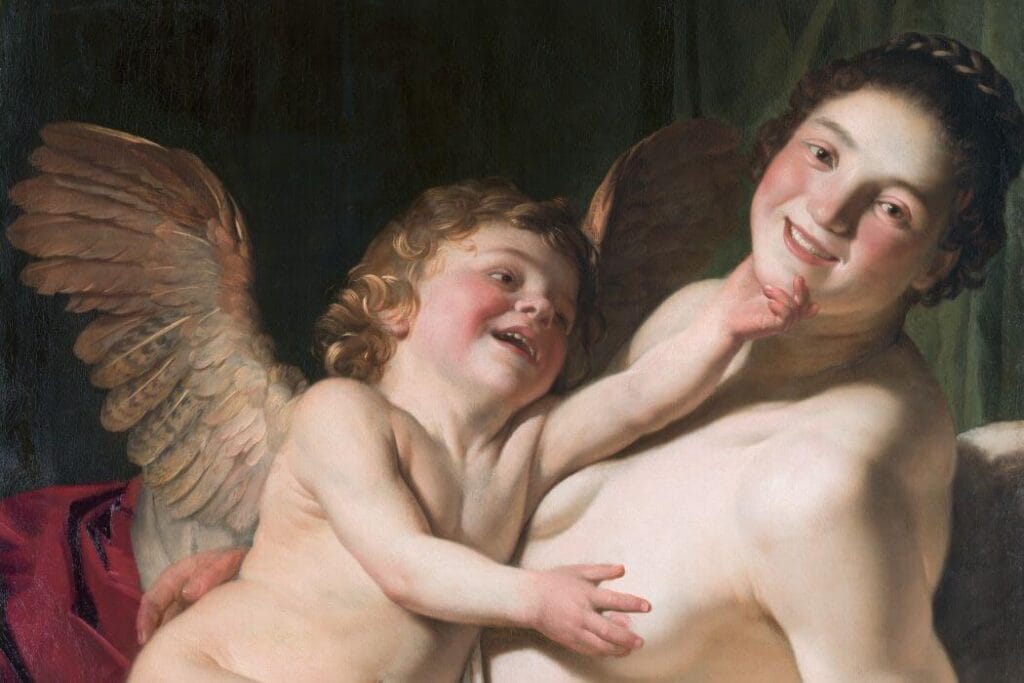
Aristophanes: The Myth of the Missing Halves
Aristophanes, the comedic playwright, is the fourth to speak. He Aristophanes views Love from quite a different angle. He claims one can only truly understand Love if he knows how it relates to our human nature. Resorting to an amusing myth, he explains that humans once had doubled bodies but then were split in two, which is why we all desire to be reunited with our missing half.
“Everyone would think that [this is] what he’d longed for all this time: to come together and be fused with the one he loved and become one instead of two. The reason is that this is our original natural state and we used to be whole creatures: “love” is the name for the desire and pursuit of wholeness.”
Plato, The Symposium 192d-192e (trans. Christopher Gill))
Agathon: Love as the Highest Virtue
Agathon, a tragic poet and the host of the symposium, is the fifth to speak. He complains that all praised the benefits of Love, but failed to praise Love itself. Agathon proceeds his encomium of Love, claiming that Love itself is supreme in beauty and excellence, while adding that it settles only in people who are also beautiful and excellent themselves.
“[Love’s] beauty of complexion is shown by the fact that he spends his time among flowers. Love does not settle on a body or mind or anything that has no bloom or has lost its bloom; but when he finds somewhere full of bloom and fragrance, there he settles and stays.”
Plato, The Symposium 196a-196b (trans. Christopher Gill)

Socrates: Love and the Beauty of Knowledge
Socrates, the famous philosopher, is the sixth to speak. He recounts a story told by a certain woman called Diotima. She claimed that Love is a connecting force that mediated between humans and their objects of desire. Man is initially attracted to beautiful bodies, but he should eventually start to see the beauty of knowledge. The highest attainable knowledge is that of the ‘form of beauty’ (cf. Plato’s Theory of Forms), so that one becomes less attached to particular instances of beauty.
“After practices, the guide must lead him towards forms of knowledge, so that he sees their beauty too. Looking now at beauty in general and no just at individual instances, he will no longer be slavishly attached to the beauty of a boy, or of any particular person at all, or of a specific practice. Instead of this low and small-minded slavery, he will be turned towards the great sea of beauty and gazing on it he’ll give birth, through a boundless love of knowledge, to many beautiful and magnificent discourses and ideas.”
Plato, The Symposium 210c-210d (trans. Christopher Gill)
Alcibiades: Drunk on Love
After all guests have spoken, a drunken Alcibiades crashes in. But instead of praising Love, he delivers a eulogy on Socrates. He tells the guests that he loves the philosopher for the beauty of his wisdom, admitting even that he tried and failed to seduce him with his good looks. While his love was evoked by an adoration Socrates’ knowledge, it evoked a desire in him of a sexual relationship, so he loved the right man for the wrong reasons, for pleasures of the body rather than the mind. Thus, Alcibiades embodies the joys, pains, and difficulties that accompany passionate loving, showing just how hard it is to attain the right kind of love in a right way (i.e. Platonic love).
“Whenever I listen to [Socrates], my frenzy is greater than that of the Corybantes. My heart pounds and tears flood out when he speaks, and I see that many other people are affected in the same way. I’ve heard Pericles and other good orators, and I thought they spoke well. But they haven’t produced this kind of effect on me; they haven’t disturbed my whole personality and made me dissatisfied with the slavish quality of my life. But this Marsyas here has often had this effect on me, and made me think that the life I’m leading isn’t worth living. (…) So I force myself to block my ears and go away, like someone escaping from the Sirens, to prevent myself sitting there beside him till I grow old.
Plato, The Symposium 215d-216a (trans. Christopher Gill)

Thoughts and Reflections
I reckon that very few people would believe you if you told them that one of the most famous works of philosophy from antiquity was named ‘the drinking party’ – for that is how Plato named his Socratic dialogue on Love, the Symposium. It certainly does a better job at piquing one’s interest than, say, Jeremy Bentham’s thrillingly descriptive An Introduction to the Principles of Morals and Legislation. Even though I was required to read some Plato for my degree in Classics and Philosophy, I was struggling so much with sight-reading the ancient Greek that I was able to enjoy reading him. Anyhow, this week I finally got around to reading his Symposium in full – albeit in translation. I still have to brush up on my ancient Greek, but all in good time. The Symposium is surely one on the best introductions to Plato: it is accessible, engaging, and entertaining. So here’s to Plato. Here’s to love. And here’s to the beauty of knowledge.

